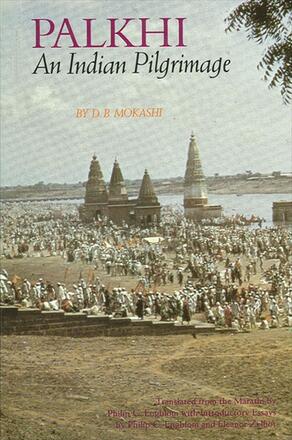
Palkhi
An Indian Pilgrimage
Alternative formats available from:
Description
Mokashi is a Marathi novelist of the post-independence generation of "Realists." This is a vivid account of his day-by-day experience on the Warkari pilgrimage from Alandi to Pandharpur on foot.
Pilgrimage is one of the most visible and pervasive features of Hinduism. Every year the Warkaris carry palanquins, called palkhis, bearing sandals representing the feet of their saints from various towns to Pandharpur in Maharashtra—to the Temple of Vitoba.
Mokashi accompanied the oldest and most revered of the palanquin processions, the palkhi of Jnaneshwar Maharaj, on its two-week journey. His account is the only sustained view of the pilgrimage in any language.
Reviews
"This book gives a wonderfully concrete and lively picture of what it is like to take part in the pilgrimage, and of what kinds of people the pilgrims include. It thus brings this immensely important cultural event to life in human terms." — Anne Feldhaus
"The author beautifully balances between entering into the experience of the pilgrims, while at the same time being detached enough to present a vivid and realistic picture of the pilgrimage experience. The real strength of Palkhi is that it is written by a skilled novelist who takes us inside the pilgrimage experience in an intensely involving way. The book is most successful at getting one inside an Indian pilgrimage, even to feeling the weariness, sensing the smells, and experiencing the moments of discouragement as well as those of elation." — Harold G. Coward
"Palkhi provides important information concerning the social reality of the Hindu tradition, and it conveys the feel of that tradition in a way that academic and didactic writing cannot." — H. P. Alper
"This book artfully presents the sights, sounds, and—amazingly—even the smells of an Indian religious pilgrimage." — Christopher Chapple